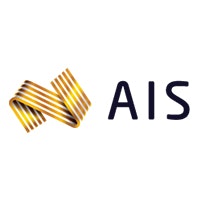Keeping Cyclists Safe – Concussion Management
AusCycling prioritises the safety and wellbeing of all riders. We understand that cycling carries inherent risks, and falls can occur during competition, training, or recreational rides. This page provides information and resources on concussion management for riders, parents, coaches, instructors, and officials.
Concussion Guidelines
At AusCycling, we have adopted the Australian Concussion Guidelines for Youth and Community Sport. This policy applies to the public and to individuals aged under 19 taking part in youth and community sports.
Download the Australian Concussion Guidelines for Youth and Community Sport
We’ve created the following cycling-specific resources:
Graded Return to Cycling Flow Chart
A step-by-step guide for safe return to cycling after a concussion.
Concussion Framework.pdf
(89 KB)
Flow Chart of Potential Concussion
Helps identify signs and symptoms of concussion.
Management of Potential Concussion.pdf
(33 KB)
Reporting and Medical Clearance
Incident Report Form
Use this form to report a concussion incident to AusCycling post-concussion. Once the form is completed, send to [email protected].
AusCycling Incident Report Form
(244 KB)
Medical Clearance / Return to Play Clearance Form
This form must be completed before returning to competition after a medical suspension. Once the form is completed, send to [email protected]. Our Member Services team will then remove the medical suspension from a rider’s membership.
Concussion Referral and Clearance Form.pdf
(156 KB)
Returning to Cycling: A Summary of the Guidelines
Our concussion management protocol applies to all cycling disciplines and emphasises a gradual return to activity. Key points within the guidelines include:
- Initial rest: After an initial 24-48 hours of rest, light exercise can be gradually introduced.
- Checkpoints: Several symptom-free checkpoints must be cleared before progressing to more demanding activities.
- Cognitive rest: Like physical activity, learning and work activities should be gradually reintroduced. Limit screen time, reading, and other mentally stimulating activities for 48 hours after a concussion.
- Symptom-free period: At least 14 days without concussion symptoms (at rest) are required before returning to training.
- Temporary symptom increase: Mild, temporary increases in symptoms during exercise are acceptable, as long as the symptoms completely resolving before resuming race simulated activities or training.
- Minimum return-to-competition timeframe: A minimum of 21 days is required before resuming competition.
- Holistic recovery: Consider all symptoms throughout the recover process, including physical, cognitive, emotional, fatigue, and sleep.
- Return to work or school: Returning to work or school should take priority over returning to sport. While a graduated return to learn and work activities can occur simultaneously with sport activities, athletes should not return to cycling competition until they have successfully completed a full return to work or school.
Additional Resources
We offer various resources to support riders, parents, and medical professionals in managing cycling-related concussions:
Concussion Pocket Card
A handy guide outlining Concussion Red Flags and a checklist for Officials and First Responders at cycling events to help assess cyclists involved in incidents for possible concussion.
AusCycling Concussion Card.pdf
(91 KB)
Sport Concussion Assessment Tool 6 (SCAT6)
A standardised tool for evaluating concussion.
Sport Concussion Assessment Tool.pdf
(1136 KB)
HeadCheck App
An evidence-based concussion app.
UCI Concussion Resources
The UCI has developed several resources for Concussion in Cycling.
UCI Concussion Protocol Video
This video, from the UCI, explains the UCI Concussion Protocol during a road cycling event.
Australian Sport Commission Resources
The Australian Institute of Sport has put together several resources to support the Concussion and Brain Health Position Statement.
We Need To Talk About Concussion
This video, from the Global Cycling Network, speaks to two riders who've experienced brain injuries.
Concussion Education Courses
Concussion in Sport for Healthcare Practitioners
Developed by the Australian Sports Commissions and designed for AHPRA registered healthcare practitioners to learn about the appropriate assessment, management and treatment of sports-related concussions.
Sport-Related Concussion Short Course
A 15-minute interactive online course developed by Connectivity, designed to educate coaches, officials, staff, volunteers, parents and other interested people on how to recognise and manage a sport-related concussion injury.




